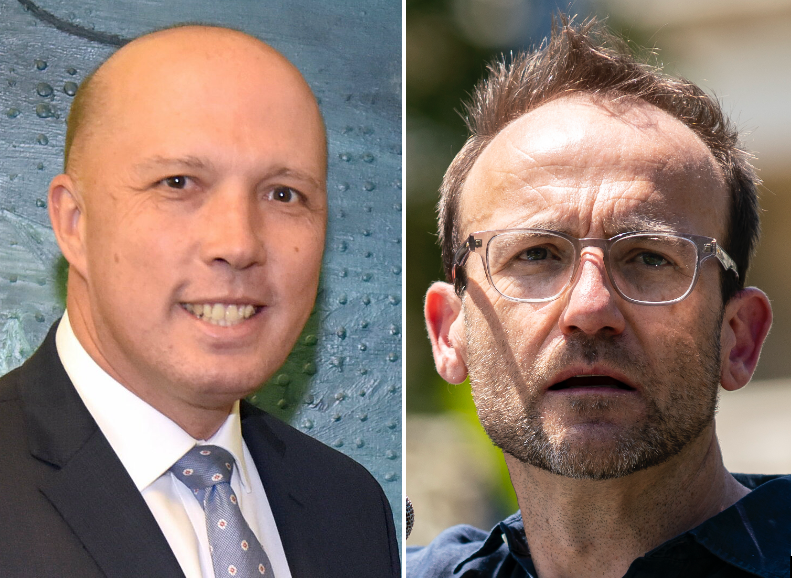The playing field is not level in the area of human rights for athletes and national sports legislation is needed, writes Dr Kim Sawyer.
AUSTRALIANS take their sport seriously — but not seriously enough.
Sport is embedded in our culture but not in our law.
Some countries have a national sports act. We do not. Some countries refer to sport in their constitution. We do not. We tend to think of sport as an adjunct to our existence when it is more than that. Sport is special because every game produces a result that affects more than the players. Sport has to be regulated carefully; the playing field has to be level both on and off the field.
Sport regulation in Australia is like a pyramid, with the Olympics at the top. We sign up for this framework to be part of the Olympics. History conferred the Olympic movement with monopoly power. In the last 25 years, the power of the Olympics has extended to other sports.
Juan Antonio Samaranch, President of the International Olympic Committee (IOC) from 1980 to 2001, often wrote about integrity and ethics in sport but the reality was different. In 1992, a British investigative journalist, Andrew Jennings, wrote the best-seller, The lords of the rings: Power, money and drugs in the modern Olympics, which identified the conflicts of interest, bribery and nepotism associated with the IOC. The IOC was not, and is not, as pure as its ideals.
In 1984, Samaranch began the regulation of sport when he established the Court of Arbitration of Sport (CAS) under the aegis of the IOC. The CAS was originally conceived as an arbitration system for Olympic disputes, but it now arbitrates in other areas.
In 1999, the IOC established the World Anti-Doping Agency (WADA) to regulate drugs in sport using codes to prescribe what was allowed and what was prohibited. The framework is simple, with WADA as the prosecutor, the athlete the defendant, the CAS the judge and the WADA codes as regulations. But the framework is flawed.
First, the CAS and WADA never separated from the IOC. The IOC created a special type of jurisdiction controlled by the IOC and riddled with conflicts of interest. The boards governing both the CAS and WADA are controlled by the IOC. The relationship between WADA and CAS is almost symbiotic — it is not typical of a prosecutor and a judge. When WADA appeals to the CAS, it is appealing to itself. The World Players Association, representing more than 85,000 athletes, is now calling for an international arbitration panel to be established as well as an independent WADA board.
Secondly, the WADA codes are unworkable. There are too many drugs, too many masking agents and not enough conclusive tests. There is too much uncertainty to be certain of anything. The preparation of the 2015 codes required 50 working drafts resulting in 2,269 changes. A more efficient approach has been suggested by Oxford Professor Julian Savulescu, who has suggested measuring the haematocrit — the percentage of red blood cells in the blood. It would be an encompassing test based on the effects rather than the drugs.
The third problem is that WADA was established with little consideration for the rights of athletes. When athletes sign up to the codes, they appear to sign away their common law right to a fair trial. As the World Players Association has stated, the WADA codes must be subject to international conventions of human rights.
These problems were crystallised in the Essendon supplements case.
First, the players were exposed to a form of "treble jeopardy". They were banned from the 2013 finals, banned from the 2015 pre-season and banned from the 2016 season — all for one set of alleged infractions.
Secondly, WADA was able to appeal to the CAS without pointing to an error in the decision of the lower court, the AFL Tribunal. WADA was able to start again.
As former High Court Judge Kenneth Hayne noted:
“WADA’s right of appeal should have been limited to demonstrating that the AFL tribunal either made an error of law or came to a manifestly unreasonable decision.”
Finally, the 34 players had vastly different exposures to the supplements program but were all found to have the same level of guilt.
As former Senator Chris Back (Liberal WA) posited at a Senate Estimates hearing on March 3, 2016:
"Even if the case can be made – and I do not believe it can – I am concerned about the proportionality. We had a group that said it had been taking it within a seven-day period. We had another group who did not take it within the seven-day period and would therefore have been quite honest in saying that they did not take it. And we had a third group who never took it — or were never tested, so we really do not know whether they took it. All three groups have been found equally guilty. As an Australian, I find that unacceptable."
Athletes have responsibilities, but they also have rights. The Parliament should consider introducing a national sports act to ensure the rights of athletes are the same as the rights of other Australians. The playing field must be level.
Dr Kim Sawyer is a senior fellow in the School of Historical and Philosophical Studies at the University of Melbourne. His principal research interests are in whistleblowing, regulation, finance and philosophy.

This work is licensed under a Creative Commons Attribution-NonCommercial-NoDerivs 3.0 Australia License
Monthly Donation
Single Donation
Support rights for all. Subscribe to IA.











